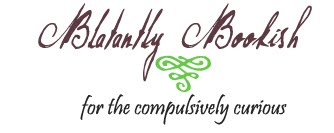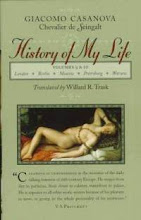
The Secret History of Dreaming kind of fell into my lap, and that's something its author, Robert Moss, would be delighted to hear. As the creator of what he calls Active Dreaming, which he has based on contemporary dream-work and shamanic traditions, Moss believes that coincidences should not be readily dismissed. Nor should dreams.
On the day that I found The Secret History of Dreaming I was in a hurry. I stopped by the library so I could pick up a book that I had on reserve, but I was already running late for a party. On my way down one of the isles, it caught my eye. It was positioned at the end of a row, so I could see the front cover rather than the spine. I looked directly at it, read the cover, picked it up without thinking, and checked it out along with my other book. It wasn't until a couple of days later that I was able to sit down and look at it. I was immediately intrigued.
Instead of being categorized purely as history, this book is classified as personal growth/history because it has a spiritual element to it. On the back cover it says that it's about, "how dreams drive the human adventure: evolution, science, literature, religion, war, politics, and survival," and that sums it up perfectly.
What Moss does in the first half of the book, "Secret Engines of History," is present the different perceptions of dreaming and dreams in different periods and cultures in history. He has found, through what he calls "dream archaeology" that, for most of human history, our dreams were valued for their ability to reveal things that were hidden from us during our waking hours. He believes that our dreams have historically helped us adapt, grow, and survive and that we have lost touch with the ability to tap into the wisdom that they reveal to us. This divide becomes clear as he presents evidence to back up his claim that people used to revere dreams as a source supreme enlightenment. Today they are believed by most to be nothing more than a reflexive mental function.
In the second half of the book, "Masters of the Three 'Only' Things," Moss really hits home. He explains the effect the dreams of several iconic figures had on history as we know it. Using real historical evidence, he shows how the three "only" things—dreams, coincidence, and imagination—intersected in these famous lives to create the familiar stories we now recognize as the consequences of their actions on history (for more information on the three "only" things, check out Moss's book, The Three "Only" Things: Tapping the Power of Dreams, Coincidence, and Imagination, which is also an interesting read).
The amazing historical figures that Moss focuses on include: Mark Twain (my personal favorite) Joan of Arc, Harriet Tubman, Winston Churchill, Carl Jung, and Wolfgang Puck. This book added a whole new dimension to my perceptions of these people, taking them out of the molds they've been put into by countless textbook accounts.
I think this book has a lot to offer anyone because its stories are both moving and enlightening. Its ratings are consistently high on both Amazon and Goodreads, as they are for his other books. It is my belief that the best authors give their readers something to think about, and Moss certainly does that in The Secret History of Dreaming.
Click here to view an interesting Q&A with Robert Moss and learn more about the unique process he used to research and write about dreams. A more elusive subject is hard to imagine, after all.
Relevant Reads:
Relevant Reads:













